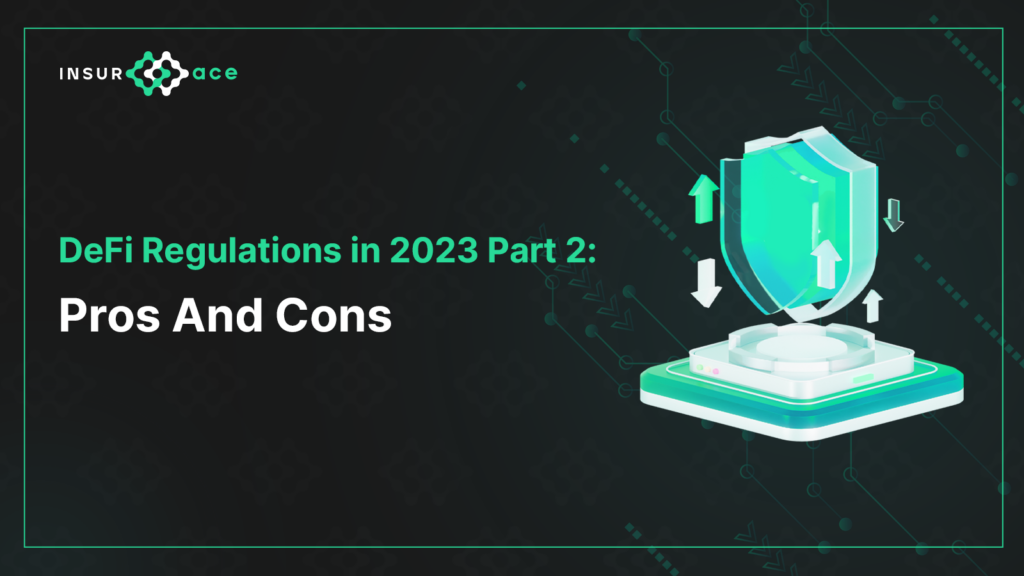Case Studies: Instances of Regulations in DeFi
Over the past few years, we’ve seen examples of regulations impacting DeFi. For instance, the SEC’s case against Ripple Labs raised concerns about the classification of cryptocurrencies. Similarly, the recent crackdown on DeFi platforms in various jurisdictions has sent ripples of concern through the community.
The French regulatory body, AMF, emphasizes the need for uniform global regulations for DeFi, advocating for a principle of “same risk, same regulation” ((Ghosh French regulator calls for global coordination on “Same risk, same regulation” policy for defi)). This approach demands a comprehensive framework with necessary safeguards to address the unique challenges posed by DeFi. The AMF has released a discussion paper shedding light on the heightened risks associated with DeFi, such as money laundering, terrorist financing, and transaction anonymity, all of which are more prevalent than in traditional finance. This underscores the importance of incorporating Know Your Customer (KYC) procedures to mitigate these risks.
Endorsing the initiatives undertaken by the Financial Stability Board and international securities regulator IOSCO, the AMF anticipates their forthcoming recommendations on DeFi regulation by 2023. It recognizes the critical need for a well-balanced regulatory framework to facilitate DeFi’s sustainable growth. Advocating a measured approach to legislation, the AMF suggests that DeFi regulations be progressive and proportionate, carefully weighing the potential benefits against the risks presented to users.
The Pros and Cons of DeFi Regulations
The Bright Side:
While there are genuine concerns, it’s essential to remember that regulations are not necessarily a death knell for DeFi. They could help protect consumers from scams and market manipulation, enhancing DeFi’s credibility and potentially encouraging more mainstream adoption.
On the flip side, excessive regulation could stifle innovation and limit the scope of DeFi services. It’s a delicate balance that needs careful navigation.
DeFi regulations also signal a certain level of acceptance for crypto, such as in the US.
However:
Some may also challenge the basics of regulations in the real world have their own political agendas so should not be carried on to the crypto world. For example, at one extreme of the curve, we find individuals who misuse privacy measures to hide their illicit activities. At the other extreme, we find people fighting for their freedoms against oppressive regimes. One is considered a criminal, the other a hero, yet both are technically violating the law, irrespective of whether such laws are deemed unjust or severe.
Most crucially, to mainstream the right to privacy, neither of these extremes resonates with the majority of the global population that forms the central part of this bell curve distribution – the average individuals without a dramatic story to warrant their need for privacy.
Possible Impacts of Regulations on DeFi Innovation
While the fear of stifling innovation is valid, it’s also possible that sensible regulation could foster DeFi’s growth by instilling more trust in the system. However, if regulations are too restrictive, they could hinder the sector’s potential and push developers and users to more friendly jurisdictions.
As regulatory bodies begin to implement rules for the DeFi sector, the industry is bound to face challenges. These potential complications become evident as major financial and government entities step into the crypto space, introducing their own exchanges and offerings.
We’ve seen that in recent development in Europe. For instance, Germany’s largest bank has announced that it will offer Bitcoin custody, showing clear institutional adoption and interest in the cryptocurrency market. In addition, finance heavyweights such as Fidelity, Charles Schwab, and Citadel have announced the launch of a Bitcoin and crypto exchange, indicating a further shift of mainstream finance towards the crypto world.
Moreover, investment management corporation BlackRock plans to launch a Bitcoin ETF, adding to the growing list of traditional finance giants entering the sector. Asset managers WisdomTree and Invesco have also resubmitted Bitcoin ETF applications, underscoring the increasing interest and involvement of institutional investors in the cryptocurrency market.
Each of these examples points to a significant shift towards mainstream acceptance and institutional involvement in crypto, indicating that the regulatory challenges DeFi faces will not only come from governing bodies, but also from within the industry as it continues to evolve and mature.
Reference List
Ebenzer, Kurt. “Defi and Offshore Trading Increase in Reaction to Regulation: Report: Coindesk Japan: Coindesk Japan.” Our Bitcoin News, 13 Feb. 2023, http://ourbitcoinnews.com/defi-and-offshore-trading-increase-in-reaction-to-regulation-report-coindesk-japan-coindesk-japan/ .
Ghosh, Monika. “French Regulator Calls for Global Coordination on ‘Same Risk, Same Regulation’ Policy for Defi.” CryptoSlate, 19 June 2023, http://cryptoslate.com/french-regulator-calls-for-global-coordination-and-same-risk-same-regulation-for-defi/ .
Jafri, Assad. “UNISWAP Founder Calls Us’ Approach to Regulating Crypto ‘Sad and Unfortunate.’” CryptoSlate, 20 June 2023, http://cryptoslate.com/uniswap-founder-calls-us-approach-to-regulating-crypt
About InsurAce
InsurAce is a leading decentralised insurance protocol, providing reliable, robust and secure insurance services to DeFi users, allowing them to secure their investment funds against various risks. Being the 1st in the industry to offer cross-chain portfolio-based covers, InsurAce enables users to get unbeatable low premiums.
InsurAce has been live since April 2021 and has built a full-spectrum cross-chain insurance product line, covering Smart Contract Vulnerabilities, Stablecoin De-Peg events, Bridge Vulnerabilities, IDO risks, and Custodian Risks… protecting over $375m of assets of 20,000+ customers!


